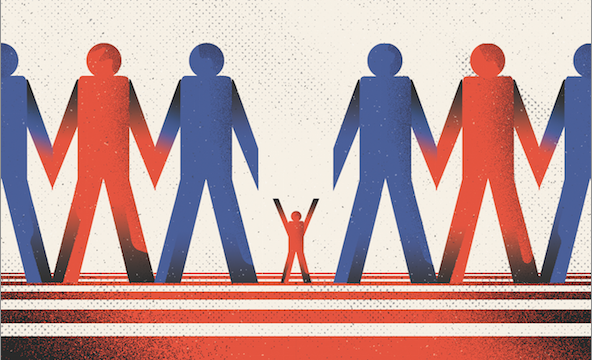Sign up for the daily CJR newsletter.

In the July/August issue of CJR, Francesca Borri wrote a powerful essay about the plight of being a freelancer, and a woman, covering the Syrian civil war for Italian media. The reaction to her piece was impassioned and global. As of August 6, it had drawn 390,000 pageviews, making it the most-viewed piece ever on cjr.org. News outlets in Poland, Germany, Portugal, France, and elsewhere asked to reprint it. Borri got offers to write for better money. But mostly there was heartfelt concern and gratitude, from some fellow journalists and a great many non-journalists.
Borri’s piece was less well received in Italy, where some journalists were rankled by the shameful picture of Italian journalism that Borri described: $70 per story; no institutional support; no interest in complexity and nuance; no sense of collegiality or common cause. In published responses, tweets, and emails, she was called a narcissist, a spoiled child, a naïf, a snob, and a fake, and accused of exploiting the Syrians’ suffering for personal gain. A weekly asked her to pose topless. Borri felt compelled to produce signed testimonials to support a few of her claims.
Some of this is peculiar to Italy. But what Borri was talking about–the devaluation of journalism–is not just an Italian problem. A freelancer in the US market could have done her own version of this story, and rankled colleagues here. The differences in the response to Borri’s piece are telling. The civilians tended to share her outrage, while Italian journalists implicated in the devaluing lashed out defensively.
A deep insecurity now haunts the profession. The devaluation of journalism is about more than just the corrosive write-for-free ethos that took hold over the last decade, as the business model broke down. Journalism lost its virtual monopoly as the arbiter of the public conversation, and with it a bit of its swagger. This shift brought plenty of good along with the bad, but journalists who had been inspired to enter the field by Walter Cronkite and Woodward & Bernstein found themselves derided as the “msm,” shorthand for so last century. We have internalized, to varying degrees, the idea that maybe what we do doesn’t matter all that much.
Freelancers have always had to deal with indifferent or abusive editors, and hustle to make even a modest living. But there are more freelancers today, and they are relied upon to cover more important stories–especially in far-flung hotspots like Syria–as the big media outlets have dramatically reduced their ambitions generally, and on foreign coverage specifically. Borri notes that editors can stick to the $70-per-story fee because there is always someone willing to take it, which suggests that part of the freelancers’ plight is a matter of market forces. But the failure of journalism’s gatekeepers to support them–in legacy newsrooms or startups–says something about industry morale broadly, not just about the economics.
Those Italian editors and reporters (including a number of fellow freelancers) who sought to discredit Borri surely are aware that journalism, as a profession, is in a funk. But when confronted with someone who forcefully points this out, they chose to cling to their toehold in the status quo rather than risk speaking out. They sought to tear down one of their own rather than stand in solidarity with her and confront a problem that affects us all. Had the target of Borri’s critique been US newsrooms, would the response have been markedly different? Maybe not.
Borri, whose father’s family owns real estate, was accused of slumming in Syria on daddy’s dime. It’s a valid question whether increasingly only freelancers of independent means can afford to go cover these important stories. But that has nothing to do with Borri’s motivation. Why was she risking her life in this hellish place if she didn’t have to? Maybe because, as she writes, people want to understand the world, not just be fed a diet of superficial mayhem and simplistic “analyses.” In other words, she believes that what journalists do–and don’t do–matters.
Has America ever needed a media defender more than now? Help us by joining CJR today.






